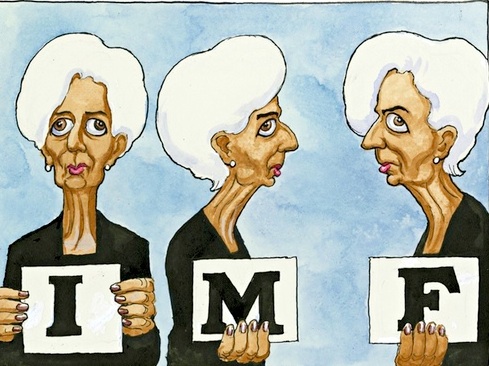Christine Lagarde writes: As 2015 begins, policymakers around the world are faced with three fundamental choices: to strive for economic growth or accept stagnation; to work to improve stability or risk succumbing to fragility; and to cooperate or go it alone.
For starters, growth and jobs are needed to support prosperity and social cohesion in the wake of the Great Recession that began in 2008. Six years after the eruption of the financial crisis, the recovery remains weak and uneven. Global growth is projected at just 3.3% in 2014 and 3.8% in 2015.
To break free from stagnation, we need renewed policy momentum. If the measures agreed by the leaders assembled at the G-20 in November are implemented, they will lift world GDP by more than 2% by 2018 – the equivalent of adding $2 trillion in global income. Furthermore, by 2025, if the laudable – yet not overly ambitious – goal of closing the gender gap by 25% is achieved, 100 million women could have jobs that they didn’t have before.
Sructural reforms and building new momentum will require pulling all possible levers that can support global demand. Accommodative monetary policy will remain essential for as long as growth remains anemic – though we must pay careful attention to potential spillovers. Fiscal policy should be focused on promoting growth and creating jobs, while maintaining medium-term credibility. And labor-market policies should continue to emphasize training, affordable childcare, and workplace flexibility.
We must consider how we can make our increasingly interconnected world a safer place. Financial integration has risen tenfold since World War II. National economies are so interconnected that shifts in market sentiment tend to cascade globally. It is therefore critical that we complete the agenda on financial-sector reform.
Countries must now implement the reforms and improve the quality of supervision. We also need better rules for nonbanks, stricter monitoring of shadow banks, and improved safeguards and more transparency in the derivatives markets. Progress on closing data gaps in the financial sector is urgently needed as well, so that regulators can properly assess risks to financial stability.
Most important, the culture of the financial sector needs to change. The principal purpose of finance is to provide services to the other parts of the economy, which it cannot do unless it enjoys the confidence of those who depend on those services. Restoring trust should therefore start with an all-out effort to promote and enforce ethical behavior throughout the industry.
The third choice, whether to cooperate or go it alone, is the most critical. Sovereign states are no longer the only actors on the scene. A global network of new stakeholders has emerged, including NGOs and citizen activists – often empowered by social media.
The year 2014 was a tough one. The recovery was slow, a series of dangerous geopolitical risks emerged, and the world was confronted with a devastating Ebola outbreak. This year may be another tough one, but it could also be a good one – a truly multilateral year.
New momentum on global trade could help unlock investment worldwide. The adoption of the IMF reforms by the United States Congress would send a long-overdue signal to rapidly growing emerging economies.
Growth, trade, development, and climate change: 2015 will be a rendezvous of important multilateral initiatives. We cannot afford to see them fail. Let us make the right choices.

